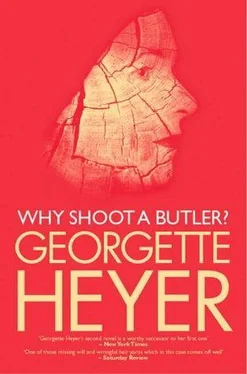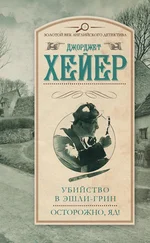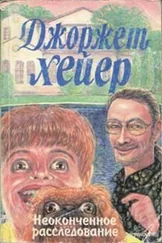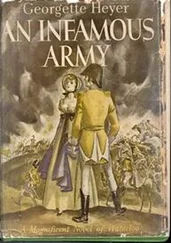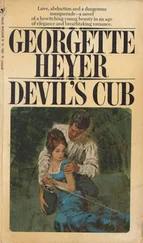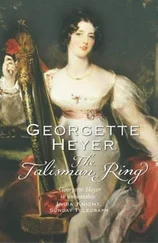Fraser and Fountain might be disappointed, but the sergeant welcomed him with open arms and said that he had known all along that he could trust him.
"Why," he said, becoming reminiscent, "I've known you now, sir, a matter of three years and more. Twice I've cautioned you for dangerous driving, and three times I've had you up for parking your car where you hadn't ought to, and once I've worked on a case with you. So if I don't know you, I'd like to know who does. No, all along - and in spite of appearances - I've said: "You can always trust Mr. Amberley."
"Sergeant, you almost unman me," said Amberley. "And what is it all about?"
The sergeant looked very knowing. "Mark Brown, eh, sir? Now that's where you and I know a thing or two. The inspector's not at all pleased about it; not at all, he isn't. He had a lot to say about amateurs meddling in police matters which I wouldn't care to repeat. But he didn't see Albert Collins come out of Ivy Cottage." He paused and scratched his head. "Now I come to think of it, no more did I," he said. "However, you did, and that's good enough for me."
Mr. Amberley asked whether he had told the inspector that and the sergeant deliberately winked. "No, sir, I did not. Didn't happen to think of it," he said offhandedly.
Amberley smiled. "Convenient memory. Don't tell him."
"Not me, sir. Of course," he added, fixing Amberley with a stern blue eye, "if I'd actually seen it that would be a very different affair. But there's no reason why. I should report a lot of hearsay to the inspector."
"None at all," Amberley agreed. "Meanwhile, is the boy being watched?"
"He's being watched all right, sir," said the sergeant. "But if you were to ask me, I should have to say that you might as well put on an elephant to watch him as young Tucker; it wouldn't be any more noticeable."
"I don't mind that," Amberley said. "As long as someone's trailing him, that's all I wanted to know."
The sergeant coughed. "Of course you have your reasons, sir?" he said tentatively.
"No," said Amberley frankly. "I've only my suspicions - which may yet prove to be far-fetched. Watching Brown is a precaution and possibly an over-precaution."
"It sounds to me as though it's going to be a funny sort of a case, sir."
"I think it is, Sergeant. Very funny," said Mr. Amberley.
"And what I don't see," pursued the sergeant, "is what a young drunk has got to do with it. Because that's what he is, sir. A proper young drunk. Scandalous I call it, at his age. Evening after evening it's the same tale. Down he comes to the Blue Dragon, drinks himself silly, and has to be put outside at closing-time. I'm sorry for the young lady, but what I say is, why don't she have him put into one of these homes you read about where they set out to cure people of wanting liquor? Not but what that does seem a crool sort of thing to do, but there you are! What can you do for such a young boozer? Because it's no good her thinking she can manage him. Mrs. Jones, who does for them at the cottage, says that when he gets the craving it'd take a regiment of soldiers to keep him in."
"Goes to the Blue Dragon every night, does he?" said Amberley thoughtfully.
"Regular as clockwork. It's common knowledge, and even old Wagge, who's been in the lock-up for drunk and disorderly I don't know how many times, gets shocked to see a kid of his age making so free with the bottle."
"Does he talk?"
"Not as I've heard. I believe if anybody asks him a civil question for the sake of making a bit of conversation, he acts silly, and says it's no good anyone trying to get anything out of him. I've known a lot of drunks that only had to have four or five before they'd start behaving as though they'd got a whole lot of wonderful secrets which everybody was trying to get out of them."
"Oh, he says that, does he?"
"Not in so many words, he doesn't. No, he just sits and drinks, and if ever he gets talking it's the usual sort of rubbish. But he soon gets past that stage, does young Brown. Well, if he didn't Mr. Hawkins would put him outside. He gets very quiet and sits staring in front of him in a very ugly way. Very ugly indeed, so I've heard. I don't say he wouldn't like to go and murder someone when he's drunk, but I should be very surprised if ever he done it. Very surprised, I should be. Because how he manages to get himself home without being run over, let alone shooting anyone, fairly beats me. And when he's sober he's not the sort of chap who's got the guts - if you'll pardon the expression, Mr. Amberley — to do a murder. Leastways, not to my mind. However, I daresay you know your own business best, sir, and in any case it won't do any harm to have him watched."
"I'm rather hoping it'll prevent harm," said Mr. Amherley, and took his leave.
He went out to his car and drove off across the Market Square. But he was not destined to return immediately to Greythorne. From the pavement Shirley Brown hailed him. He drew up alongside her obligingly. She said in a voice quivering with indignation that she wanted to speak to him. He replied with some humour that that was a pleasant surprise.
She paid no heed to this remark. Wrath blazed in her dark eyes; she even stammered a little as she spoke. He had dared to set a plain-dothes man on to watch her brother! She told him it was no use denying it; he merely laughed. She accused him of double-dealing, for had not he asked her to trust him, while all the time he meant to spy on Mark? With a sudden change of front she poured scorn on the constable who was shadowing Mark; it was obvious to the meanest intelligence that the man was a policeman. The whole thing was an outrage, and she never wished to see Amberley again as long as she lived. With that she swung on her heel and strode off, furious because she knew that he was laughing at her.
Next day Mr. Amberley sustained a second visit from the chief constable, who was plainly restive. He had expected something to happen; he thought he had better look Amberley up. Amberley, who was oddly irritable, said tartly that the colonel might be thankful that nothing had happened; and when the colonel, looking exceedingly nervous, ventured to ask what he meant, he gripped his pipe between his teeth, thrust his hands in the pockets of his grey flannel trousers, and continued to wander round the room without vouchsafing any answer. Pressed more closely, he said that until he received the answer to a cable he had dispatched he could give the colonel no information.
The answer arrived that evening just before ten. The butler brought it into the drawing room where Amberley was sitting, listening to Sir Humphrey on the subject of preserving. Sir Humphrey, quite uninterested in local murders, was justly incensed by the presence of poachers in the district. He told Amberley what his keeper had said and what old Clitheroe-Williams thought ought to be done, and how he himself had heard a shot at five o'clock the other morning, and Amberley gave abstracted answers and did a complicated Patience. Sir Humphrey had just announced his intention of speaking to that fellow Fountain about his head-keeper, who was an incompetent ass if ever there was one and lazy to boot, when the cable was brought in.
Amberley swept the playing cards into a heap, and getting up without waiting to hear the end of Sir Humphrey's monologue, went off to decode it in private.
Felicity, agog with curiosity, made an excuse to follow him presently to the study and begged to know whether the cable had something to do with Dawson's murder. Without looking up Amberley replied that it had not.
Felicity was disappointed. "You seem fairly pleased with it anyway," she said.
"I'm always pleased to find my theories are correct," said Amberley. He got up and glanced at his wrist watch. "I shall have to leave you, loved one. Back soon."
Читать дальше
